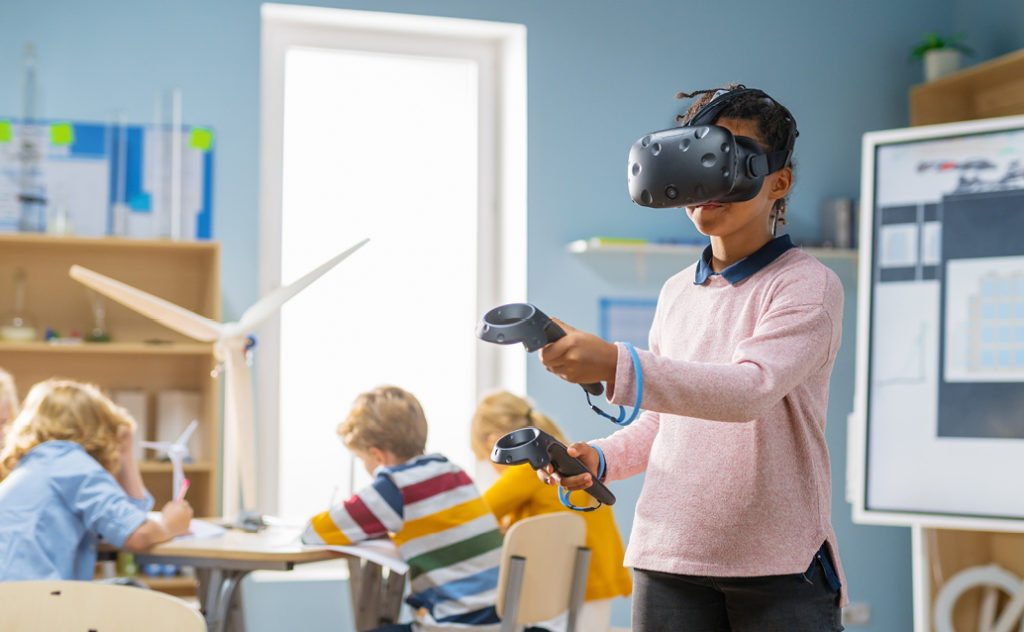
Over the course of any given school year, teachers are always being introduced to the latest in technology tools guaranteed to make educating students more efficient while improving outcomes. The number of available tools is staggering, but there are few that have the potential to completely reshape the landscape of education. There are three emerging trends gaining prominence in education: virtual reality, augmented reality and artificial intelligence.
Virtual Reality and Augmented Reality
Virtual reality (VR) and augmented reality (AR) are usually joined together in discussions. However, there are distinctions between the two technologies. With virtual reality, individuals are immersed in artificial simulations while augmented reality provides enhanced visuals within real-world environments. Specialized headsets are necessary to access virtual reality simulations, but users can view augmented reality products using tools such as tablets and mobile phones.
Integrating VR and AR usually means giving students the opportunity to see and experience what they’re learning in an incredibly immersive way. Teachers can bring science concepts to life by displaying them via AR. There are apps that utilize AR to project information over what a device’s camera is pointing at. There are also historical events that have been recreated in VR that allow students to get a sense of what it felt like to actually live through them.
Artificial Intelligence
When most people think of artificial intelligence and its connection to education, images of robots replacing teachers come to mind. In reality, artificial intelligence is not advanced enough to replace teachers. Instead, artificial intelligence programs are used for adaptive learning systems and other applications designed to individualize support and add efficiency to educational processes. For example, plagiarism software uses artificial intelligence to analyze and detect potential inappropriate copying.
Preparing for the Future in the Present
Despite the expansion of technology integration in education, educators will not need computer science degrees to navigate emerging educational pathways. There are already practical uses of virtual reality, augmented reality and artificial intelligence in education, and several resources are available to learn about these technologies.
The International Society for Technology in Education offers introductory information on artificial intelligence and free guides with classroom activities. For educators who want to delve deeper into emerging technologies, American College of Education offers various programs focused on educational technology, including a M.Ed. in Educational Technology, a Certificate in Virtual Education and micro-credentials in Educational Technology and Digital Teaching and Learning.To paraphrase President Abraham Lincoln, the best way to know the future of education is to prepare for it.
Explore American College of Education’s fully online education programs.

